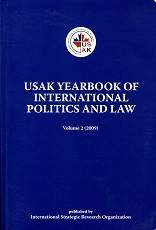
Obama and Change -But How?
Obama and Change -But How?
Barack Obama is officially the President of the United States. For nearly, two months not only the US, but also the world discussed his election, his team, and the change he would bring to the White House. After eight years of Republican control, the West Wing passed to the hands of Democrats again. The George W. Bush administration lately condemned for all the evil faced by Americans and the World has been replaced with a young, vigorous administration associated with the banners of change and hope. Nevertheless, Obama inherited the economic recession, Iraq failure, rising tension with Iran and Russia, and rising anti-Americanism. Change will take place, yet its extent is unknown.
More...